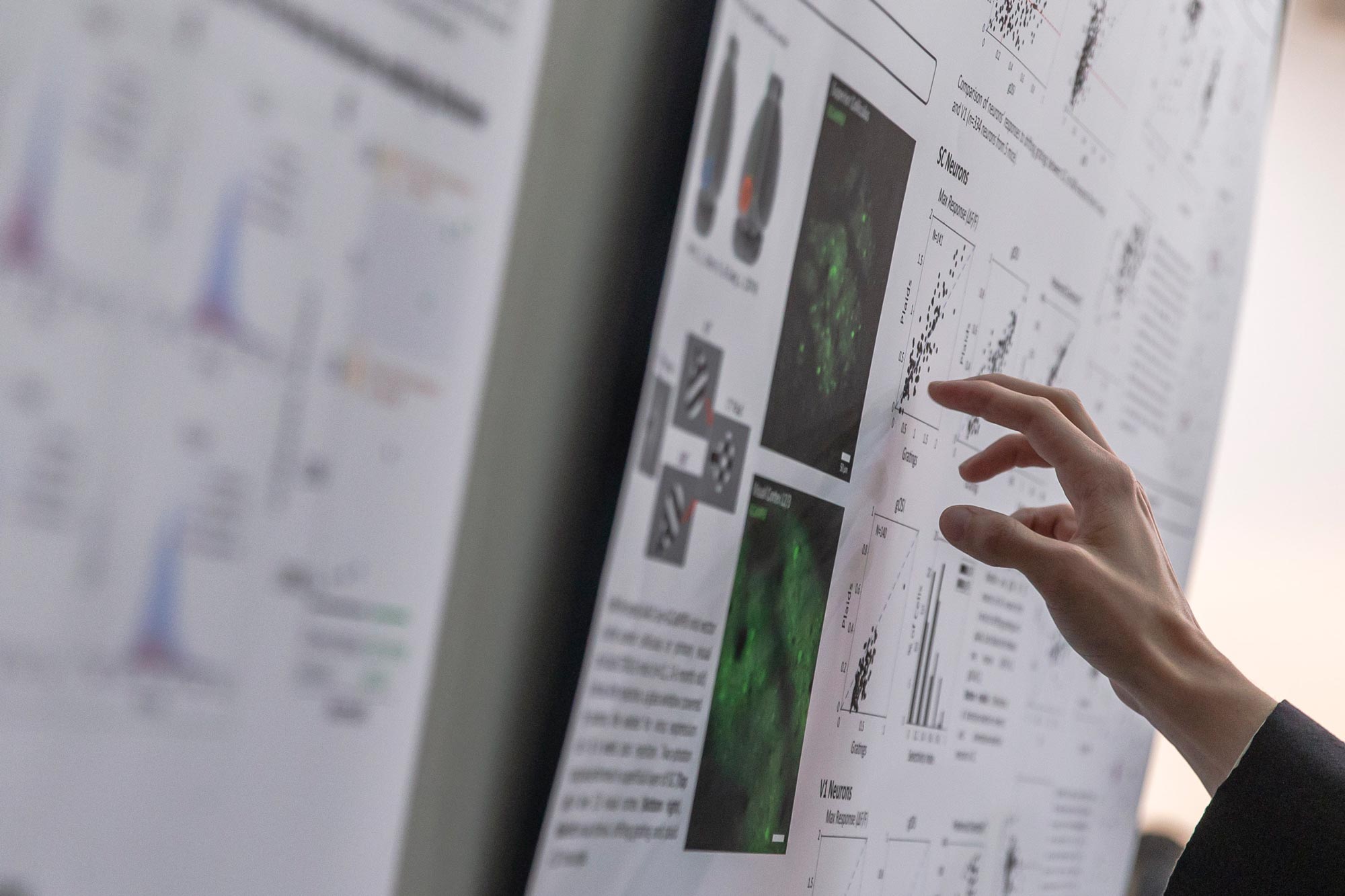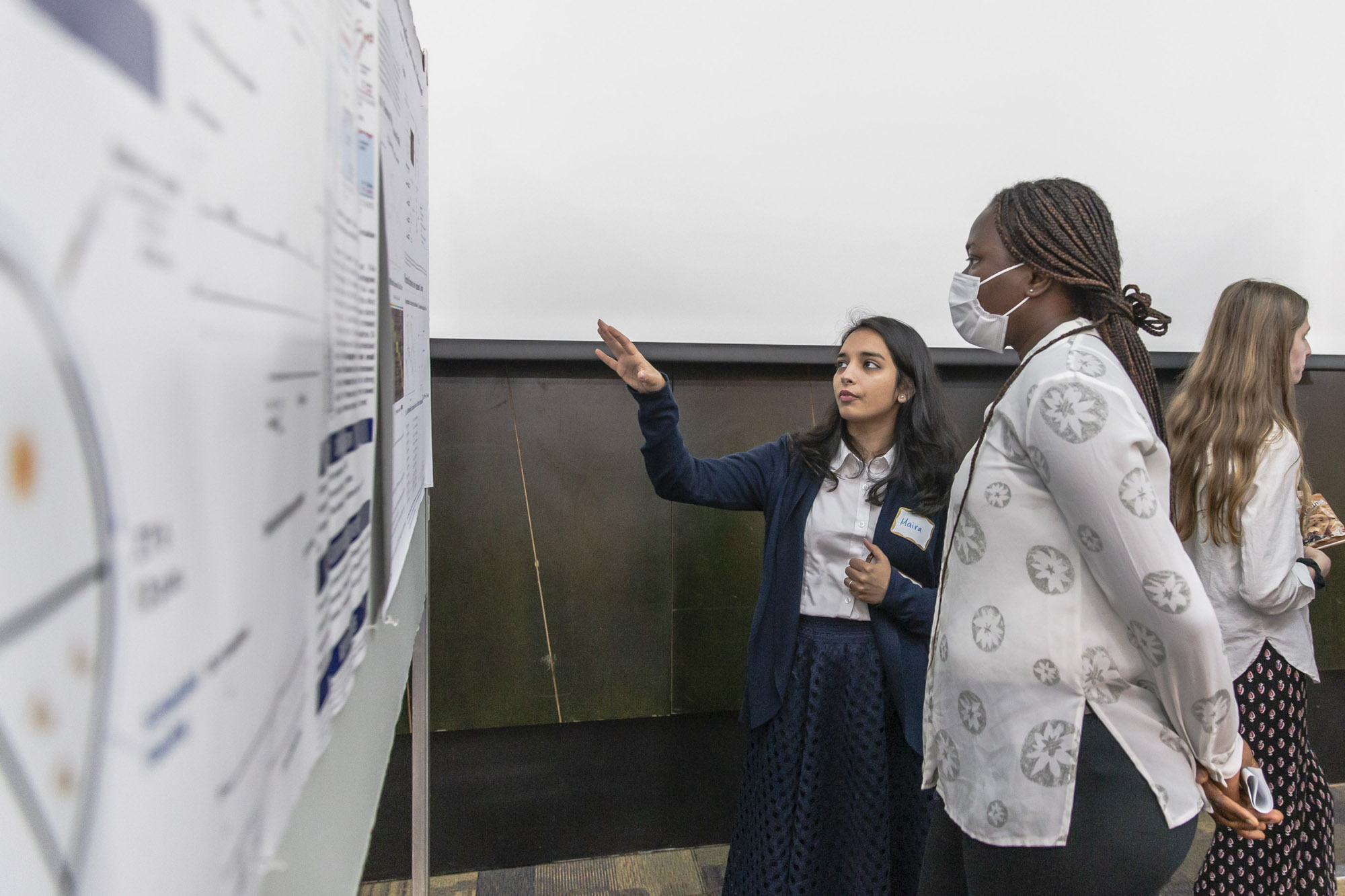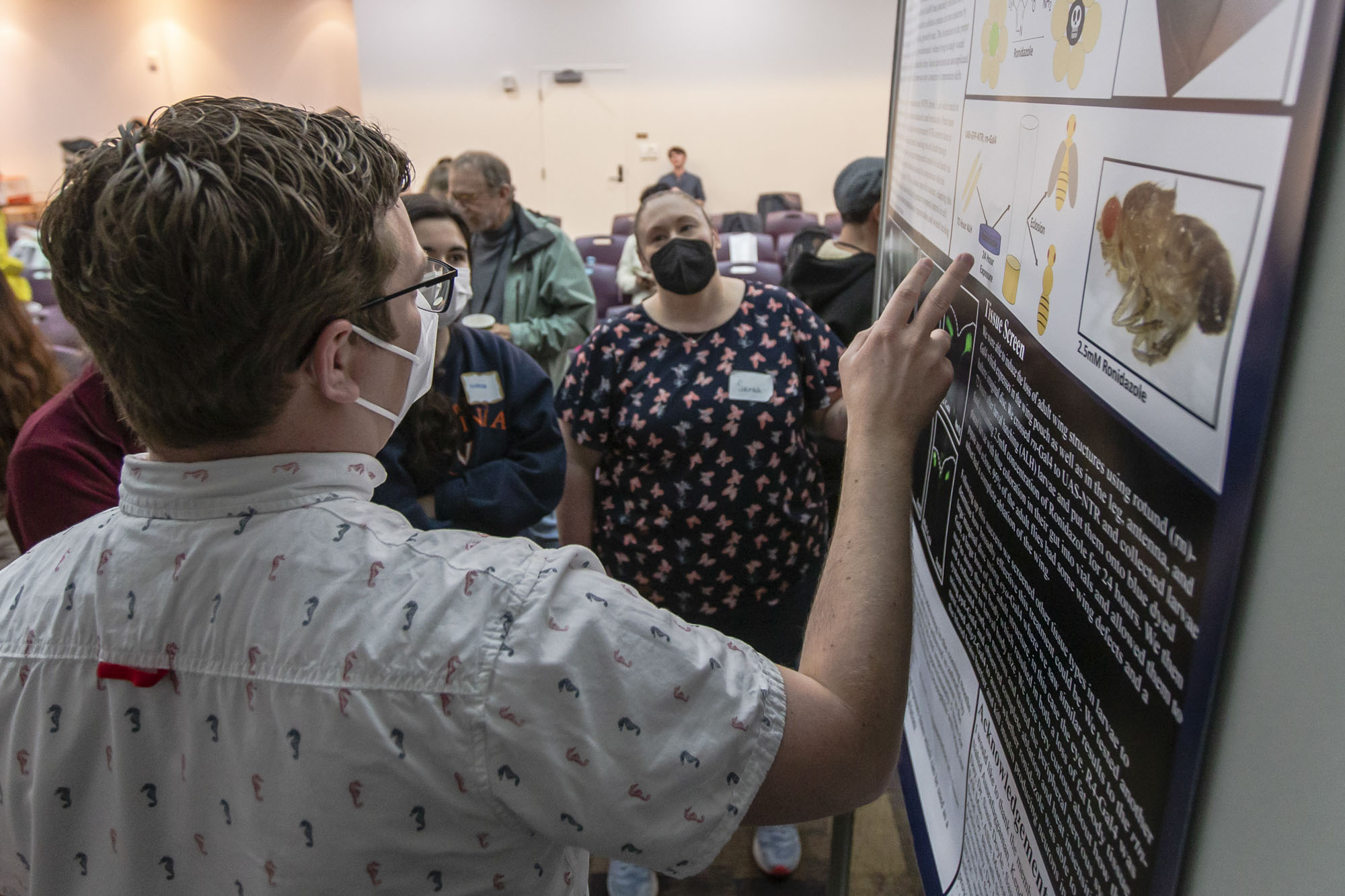“Everybody who’s involved in this, they have a mission of diversifying not just neuroscience, but science,” Kucenas said. “And the fact that we saw a room that was diverse, with many female scientists, many people of color, people with different religious backgrounds – it was really heartening that the future was represented. Humanity was represented in that room.
“And I think that was incredible to us because it showed we were on the right track. Diversifying the major, expanding it, making it accessible was absolutely the right thing to do.”
The transition from neuroscience as a major to a full-blown program with dedicated faculty, additional classes and more students started in 2021-22. Year 1 of the “PFN,” as those on the inside have come to call it, was a success, recent graduate Jessica Laudie said.
“It’s drastically changed for the better,” Laudie, who conducted research in the Deppmann Lab, said during a recent program retreat at Runk Dining Hall that included seminars, poster sessions and presentations. “The communication between the students and faculty is so much better now. Getting to go to events like this and interacting with faculty has been so amazing.”
When UVA began offering neuroscience – the study of the brain and nervous system – as a major in 2003, it was one of the first schools in the country to do so. Nearly two decades later, the University remains on the cutting edge with this expansion – going from a limit of 25 students admitted to more than 50 in the program’s official first year, and with plans to host as many as 200 in the near future. A newly renovated space in Gilmer Hall will begin to house the program this summer, allowing for more collaboration among departments, such as biology and psychology.
“Gilmer Hall will be home to most neuroscientists in the College, going from, if you will, the molecules to the mind,” Cang said. “We’ll go from molecular neuroscience to cognitive neuroscience. It really goes through the whole spectrum of neuroscience. I’m really excited about that.”
As are UVA students. But why has this complex topic become so popular among young people?
Kucenas has a couple theories.
“One is people are living longer, so they have family members affected by neurological disorders such as Alzheimer’s and Parkinson’s disease,” she said. “They might have participated in the ALS ‘Ice Bucket Challenge’ when they were kids. They were seeing that.
“Also, it’s just a really interesting way to approach science and medicine. A lot of our students are pre-med or pre-health, and neuroscience is a really great way to dig into that bigger picture of helping humanity.”












